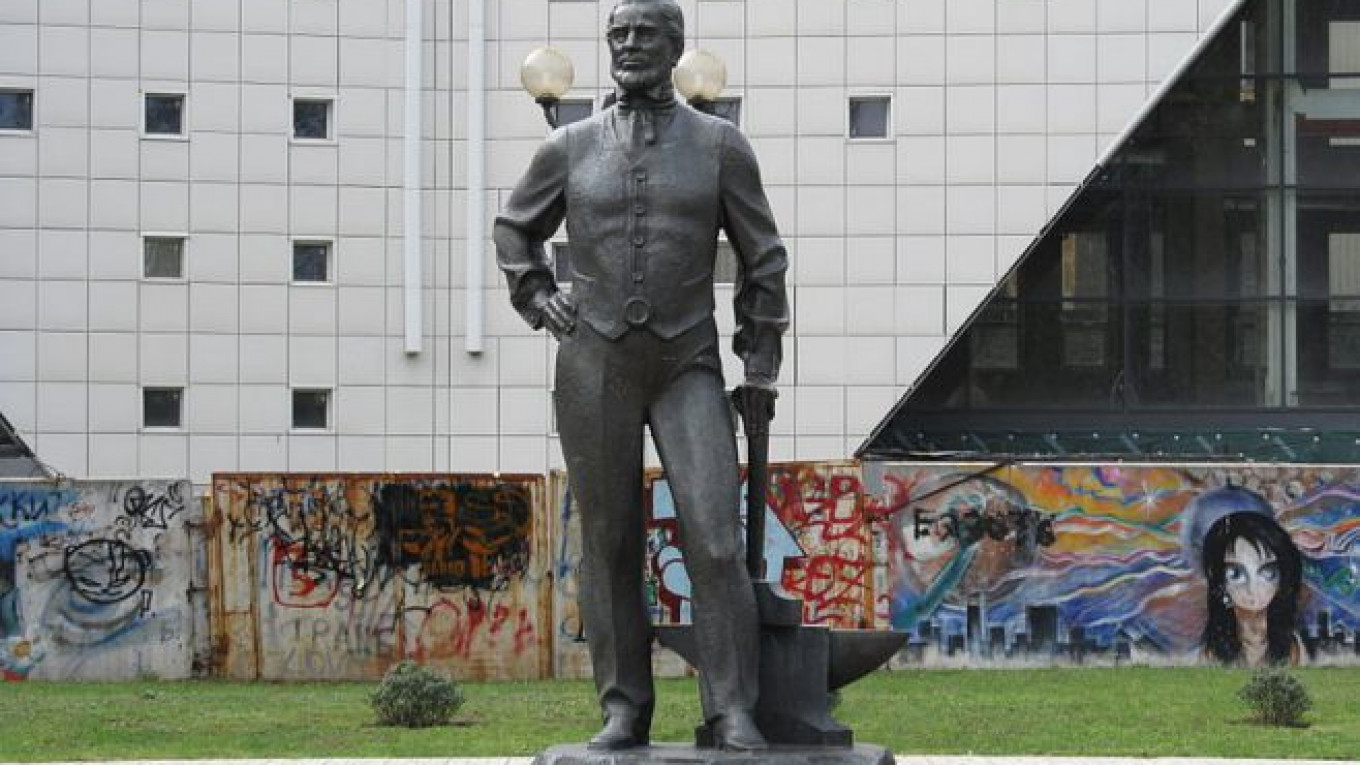Internet users in the eastern Ukrainian city of Donetsk have proposed holding a mock "referendum" on whether their hometown should secede to the U.K., as Donetsk was founded by a 19th-century British industrialist.
"Donetsk is a British city! God Save the Queen," said the jocular appeal posted on social networks, following the Moscow-backed March 16 referendum on Crimea's secession from Ukraine to Russia.
?”?????µ?†?? - ?°?????»???????????? ?????€???? :) http://t.co/73i7BiSnUG pic.twitter.com/ZjoBUMd2pb
— ???°???µ?» ???»?µ???????????? (@rescuero) March 23, 2014
The online appeal asked the people of Donetsk — "fellow Britons" — to seize the "decisive moment" and have their say on "where your children will live and what language they will speak."
Donetsk was founded in 1869 by Welsh businessman John Hughes, who built a steel plant and opened up coal mines in what was then a region of the tsarist Russian empire, and the city's original name of Yuzovka was taken from a Russian approximation of his surname.
"For more than a century Russians have deceived us by saying that this is an indigenous Russian city, and Ukrainians — that it is Ukrainian," the online appeal said.
"We are demanding a referendum on returning Yuzovka to its original bosom — Great Britain!" it said.
The local Donbass.ua news website reported that more than 7,000 people had supported the proposal by Sunday, with an online poll showing about 61 percent of respondents favored accession to Britain, and another 16 percent favored "broad regional autonomy" with English as an official language.
A reader of the Ekho Moskvy news website said Sunday that if a similar appeal had originated from a Russian region, the online pages that carried it "would have been immediately shut down for incitement and extremism."
Since the start of Ukraine's political protests and Moscow's annexation of Crimea, Russia's Internet regulators have shut down a number of online pages, accusing them of "extremism" for publishing the views of Ukraine's anti-Moscow protesters.
President Vladimir Putin also signed a law last December, making public calls for separatism punishable by a prison term, but some analysts have said that by annexing Crimea under the guise of protecting the peninsula's Russian-speaking population, Putin has opened a Pandora box of separatist drives in and around Russia.
After Russia moved in to seize Crimea early this month, unrest has gripped Ukraine's largely Russian-speaking eastern and southern regions, and clashes between pro-Moscow and pro-Ukrainian protesters have turned violent in Donetsk and other cities.
A Message from The Moscow Times:
Dear readers,
We are facing unprecedented challenges. Russia's Prosecutor General's Office has designated The Moscow Times as an "undesirable" organization, criminalizing our work and putting our staff at risk of prosecution. This follows our earlier unjust labeling as a "foreign agent."
These actions are direct attempts to silence independent journalism in Russia. The authorities claim our work "discredits the decisions of the Russian leadership." We see things differently: we strive to provide accurate, unbiased reporting on Russia.
We, the journalists of The Moscow Times, refuse to be silenced. But to continue our work, we need your help.
Your support, no matter how small, makes a world of difference. If you can, please support us monthly starting from just $2. It's quick to set up, and every contribution makes a significant impact.
By supporting The Moscow Times, you're defending open, independent journalism in the face of repression. Thank you for standing with us.
Remind me later.


